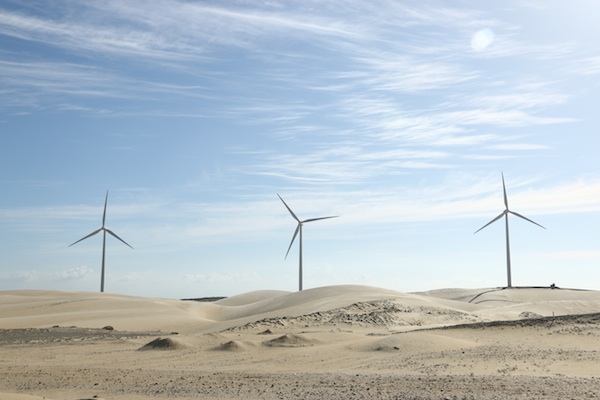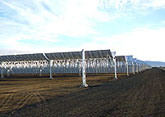On 22 March, World Water Day, Greenpeace presented its report on coal and water. Water is essential for life on the planet and plays a crucial role in human development, from sanitation and health, food production, economic development and of course power generation.
The report denounces how the coal industry, in particular power generation by this fossil fuel, is depriving the human being of enormous amounts of water. The overall impact that our continued dependence on coal energy is having on freshwater resources in the world is assessed and made public for the first time in the document. Specifically, the sector currently consumes the same amount of water resources needed by 1,000 million people.
[Pullquote] The coal sector currently consumes the same amount of water resources needed by 1,000 million people. [/ Pullquote]
The study was based on analysis of data from 8,359 coal plants in operation in the world (including Spanish) and other 2,668 that are planned, totaling almost 110 countries analyzed.
Our country with 11,132 MW of installed coal power capacity (end of 2013) positions us in 14th place in the world in terms of water consumption for this reason. Our coal power plants spend 200 million m3 / year (maximum), or what is the same thing the amount consumed by 3.4 million Spaniards, enough to supply the inhabitants of the cities of Madrid and Alicante together for a year.
Greenpeace denounces in its report that governments are not managing water sustainably, and continue to allow the coal industry take advantage of this valuable resource at their own interest. They are not carrying out detailed assessments of the impact of the entire life cycle of electricity generated by coal (mining and washing ore, combustion waste management and combustion) and the enormous impact it is having on the water resources.
Plans to continue increasing worldwide installed capacity of coal power plants (almost 1,300 GW expected at the end of 2013) are to be added. This could engulf many regions already suffering severe water stress in humanitarian crisis and severe drought.
This huge demand of water resources, which would impact important sectors of society, could seriously affect many countries. In some of them the conflict over water could force their governments to make difficult decisions regarding the balance in water availability, for example, food production, supply of major cities, as well as maintaining the environmental needs.
In Spain preventing this is the responsibility of the utilities that must «urgently» incorporate the shut down of all coal power plants within their strategic plans. It is also the responsibility of the Government to enforce and implement once and for all a valid and fair alternative for the Spanish regions that still live on coal.
July Barea @juliobarea) campaign manager for Greenpeace Spain
Carlos Sánchez Criado
Publicista por la Universidad Complutense. Director comercial de publicaciones técnicas del sector de la energía durante doce años. Director de Energy News Events, S.L. desde 2012 difundiendo información en Energynews.es, movilidadelectrica.com e hidrogeno-verde.es. Y por supuesto, organizando eventos como VEM, la Feria del Vehículo Eléctrico de Madrid.


























